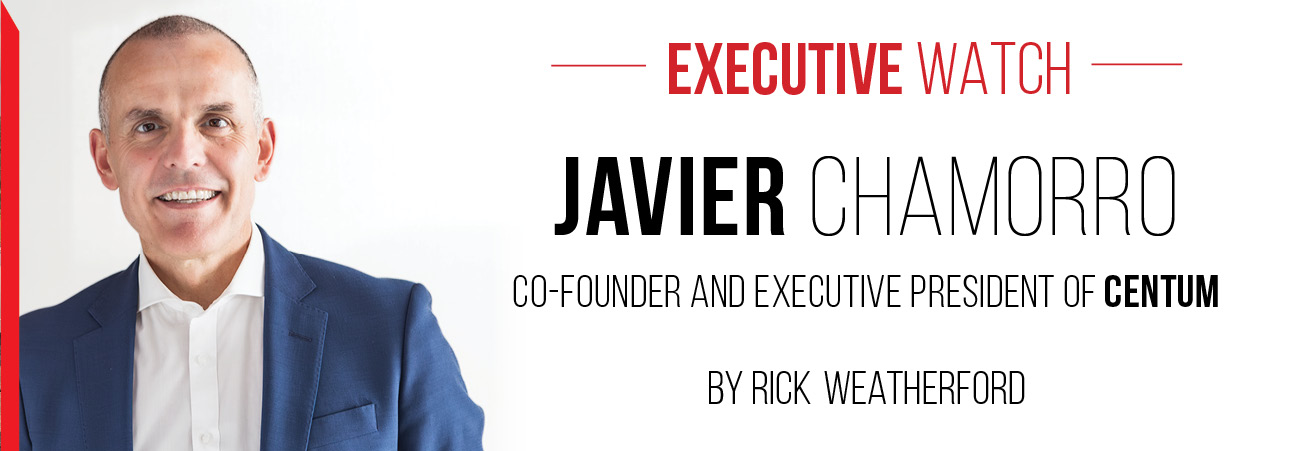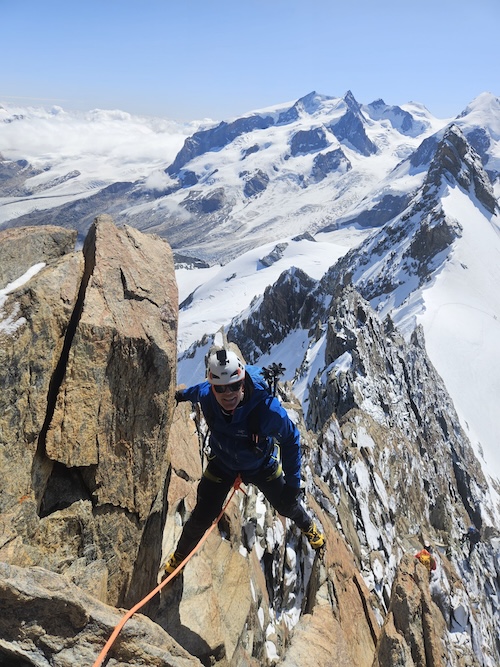|
Nov
13
2025
|
|
Posted 109 days ago ago by Admin
|
|

Who or what is Centum and why might you care? For over 15 years, Centum, headquartered in Vigo, Spain, has been designing and developing mission airborne systems that assist search and rescue (SAR), intelligence, surveillance and recognition (ISR), maritime surveillance, firefighting, emergency communications, and border-control missions.
So, why should you care? Well, if you’re ever lost in need of help, or are looking for the lost in a SAR mission, you jolly well will care! Let’s say you’re flying a SAR mission. Chances are very good that the person you’re seeking has some sort of cellphone and that’s very good for you—and them. Centum’s Lifeseeker airborne phone location system is based on the premise that the cell phone is the world’s most widespread beacon and it turns cellphones into emergency beacons capable of guiding rescue teams to a lost person’s exact location. The system also allows rescue teams to communicate with the missing person—without the need for that person to do anything—and has proven itself in thousands of successful missions over five continents.
Opportunity Seeker
Now that we’ve piqued your interest, let’s meet the man who has driven this welcome innovation. Enter Javier Chamorro, co-founder and executive president of Centum. He was encouraged to pursue opportunities by his parents as he grew up in northwest Spain in the Principality of Asturias. “My parents wanted my sister and me to study because they didn’t have the chance to earn college degrees. They worked to give us opportunities they never had. Chamorro’s parents made the big jump from the end of the right-wing Franco dictatorship in 1975 to modern, democratic Spain. Chamorro (and his sister) made the leap with them. He earned degrees at the University of Oviedo in industrial engineering and electronics. After graduation, he left his home province to earn a graduate engineering degree in telecommunications at the University of Vigo in Pontevedra.
In 2000 with degrees in hand, he got a big-data analyst job at a telecommunications company to analyze how their customers behaved. “I loved it,” he says. “It forced me to focus more on the business and its customers rather than on strictly technical stuff. I would imagine myself in the owner’s shoes to see the business from an owner's perspective.” After three years of doing that data work, Chamorro joined a multinational corporation to gain business development experience and learn more about customers. He said, “I thought if I didn’t like business development, I’d go back to a more technical direction—but I liked it!”
Centum Begins
That work put Chamorro on his path to become an entrepreneur business owner. Two years into being a business development, he met his current business partner, Igor Amantegui, and they co-founded Centum in 2005 with the original concept to develop an aerospace and telecommunications company. For their first five years Centum was a consultant company, but in 2010 they made the very fateful decision to intentionally innovate and transition from a services company into one that created products. At first, they came up with a lot of ideas and then narrowed them down to two top candidates: one option was to develop a drone and the other finalist was to use cellular communications to save lives from helicopters. “We went with the second option and I think it was the right one,” says Chamorro. “We’ve been focused on products like LifeSeeker since making that decision. All of our products now combine telecommunications and helicopters.”
Why develop search-and-rescue (SAR) products for helicopters? It’s a natural fit, Chamorro says, “Helicopters perform both sides of the mission: they can do the search and they can also do the rescue.” Plus, developing and testing SAR products keeps him in the mountains where helicopters fly many SAR mission—and where he loves to pursue his passion for hiking and climbing. It’s a win-win environment for him and his business.

It's not all about combining hobbies and business; it’s about much more. “The best feeling I ever had in business was when a Swiss air force Super Puma, our first customer, used our product to rescue a woman. Watching that was the best feeling ever,” Chamorro says.
Another great feeling is seeing his son and daughter successfully pursue their higher education and become “nice and healthy” young adults. He credits his wife, Marta, an art historian, with guiding their growth.
Family and Reading
If his children ever need information for a college book report, Dad will be a natural research assistant. Chamorro has been an avid reader throughout his life and compiles notes on virtually every book he reads. He says, “Almost every book I read, I learn something and something inside me changes.”
The last two books he devoured are Skin in the Game by Nassim Nicholas Taleb, which is about how risk should be spread among parties making a big decision. One side should not receive reward while another side assumes risk. Book two is Principles of Economics by Saifedean Ammous. “It’s a basic, simple economics book,” he says. “I tend to focus on different subjects as I read throughout life. In the past, I’ve read history and philosophy, but now I’m reading about economics from Marxism to (free-market) Libertarianism. At the end of the day, I want to understand social behavior.”
Show Me
When hiring for Centum, the behavior that Chamorro looks for can be summed up with show, don’t tell. He says, “Actions speak louder than words. Don’t tell me who you are, but show me with your behavior. Our company looks for integrity, commitment, and the ability to get along with others.”
Don’t misunderstand; Chamorro doesn’t expect his team to take strategic action without direction. Centum is not a show-me-or-else environment. “My style adapts to the people I work with,” he says. “Two things that are always part of my leadership are (1) setting a mission vision and (2) including my team in the decision process. Depending on the circumstances and people, I may emphasize one over the other, but mission vision and inclusive decision-making are always part of my leadership.”
Hooked on a Feeling
The focus of Chamorro’s Centum vision and decisions is customers. “Intentionally building lasting relationships with customers is key to long-term success,” he says. “I’ve seen that helicopter pilots and crews are committed to their missions; they just don’t work for a salary, but they believe in what they do. When we work closely with our customers we get hooked by what they do and we want to stay close to them.”
You can say that Chamorro is ‘hooked on a feeling.’ He concludes, “People in the helicopter industry are very passionate about the important work they do. You can actually feel their dedication. Crews behind the scenes when they’re not flying a mission are constantly training to prepare themselves and they’re working out the details to be ready for when they are called on a SAR mission. To provide a product that contributes to the success of these missions is a very satisfying feeling.”
READ SEP/OCT ISSUE OF ROTOR PRO
READ MORE ROTOR PRO: https://justhelicopters.com/Magazine
WATCH ROTOR PRO YOUTUBE CHANNEL: https://buff.ly/3Md0T3y
You can also find us on
Instagram - https://www.instagram.com/rotorpro1
Facebook - https://www.facebook.com/rotorpro1
Twitter - https://twitter.com/justhelicopters
LinkedIn - https://www.linkedin.com/company/rotorpro1